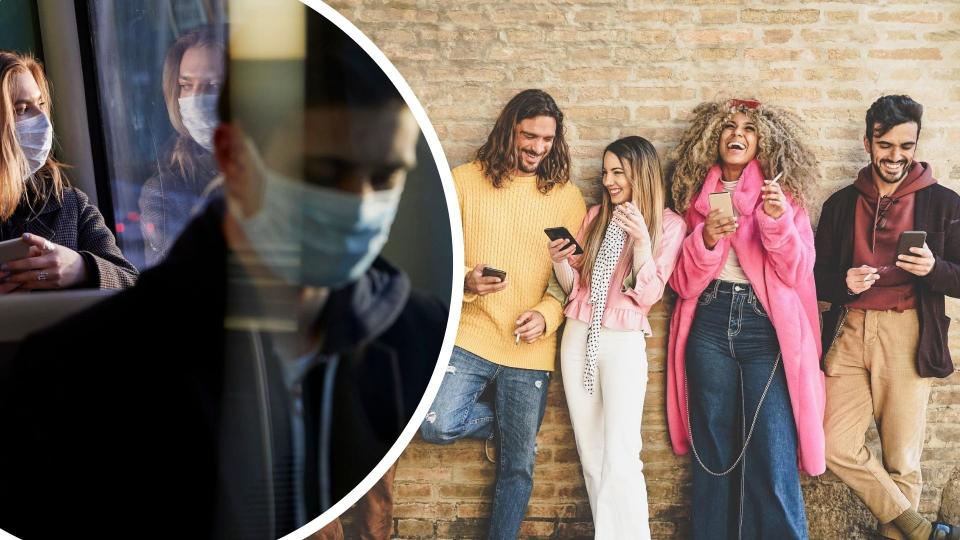How coronavirus could end another $1.4 trillion epidemic

The global coronavirus pandemic has claimed 807,000 lives and infected 23.3 million people, with the world now racing to find a vaccine.
But with the virus still circulating, the health crisis has prompted people to quit smoking en masse amid fears the habit worsens the disease once contracted.
While smoking increases a person’s risk of respiratory infections or illness, there are no studies yet showing that smoking increases a person’s chance of contracting Covid-19.
Smoking costs the global economy more than US$1 trillion (AU$1.39 trillion) every year, according to the World Health Organisation and kills more than 8 million people around the world every year. The WHO says it will ultimately kill up to half its users - making it a significantly more deadly health crisis than coronavirus in some ways.
More than one million people in the UK ditched the cigarettes since the beginning of the pandemic, with 41 per cent attributing the decision to their concerns about Covid-19.
And in Australia, four times as many people have tried to quit smoking during Covid-19, Minister for Health Greg Hunt has revealed.
“Smokers are more at risk of serious illness if they become infected with Covid-19,” Hunt said.
“Smokers are more likely to have lung damage or lung disease, which greatly increases the risk of serious illness should they contract Covid-19. When someone smokes, their fingers make contact with their lips. This may increase the chances of transmitting the virus from their hand to their mouth.”
And in South Africa, the Government banned tobacco products during its five-month lockdown in a radical move. Tobacco companies are now planning to sue over the ban - the only ban of its kind worldwide. The ban has since been removed.
British American Tobacco (BAT) Plc in June downgraded its forecasts for full-year sales growth as lockdowns in developing countries stung sales, with curfews in several countries denting uptake. BAT expects a 7 per cent decline in global industry sales volumes of cigarettes.
Using one crisis to solve another
For former New Zealand Prime Minister and co-chair of the Independent Panel for Pandemic Preparedness and Response Helen Clark, the links between the two health crises are obvious.
As part of her role, Clark has a mandate to investigate what went wrong in containing Covid-19 and make recommendations about future preparedness.
The independent panel will release its interim report in November with a final report due in May 2021.
Clark, who will speak at the Yahoo Finance All Markets Summit on 17 September, tackled New Zealand’s smoking epidemic as Minister of Health in 1989. She led the country's first comprehensive tobacco control legislation in a bid to stamp out the “tobacco epidemic”.
To tackle the smoking crisis, Clark said New Zealand needed to make changes that the country now takes for granted.
“[The legislation] banned smoking on public transport, banned sales to under-sixteen year olds, required disclosure of ingredients, restricted smoking in indoor workplaces, banned tobacco advertising and sponsorship, and established the Health Sponsorship Council (now the Health Promotion Agency) to replace tobacco sponsorship,” Clark said.
“New Zealand’s smoking rate has plummeted to one in eight adults. This major achievement has prevented thousands of early deaths from cancer and heart and lung diseases, and has contributed directly to our increasing lifespan. Very few young people now take up smoking.”
And Covid-19 has highlighted the way the world can make major behavioural shifts - changes that will be required to address the tobacco epidemic.
Less socialising also has a role to play in reduced smoking habits, University of Massachusetts assistant professor of psychiatry Amy Harrington said.
She described the pandemic as providing a “unique window of opportunity” for smokers to quit as it provides the added motivation, and makes popping down to the shops to purchase cigarettes a more risky activity than previously.
Others still are choosing to smoke less due to the financial considerations.
The average Australian smoker spends $5,237 a year on cigarettes, and also cops significantly higher health insurance premiums.
And the price of cigarettes is only increasing - the price of cigarettes increased 25 per cent in 2010 and between 2013 and 2025 is on a path to increase 12.5 per cent every September. That means that the average 25 pack will cost $48.50 from next month.
“Quitting is hard, even under normal circumstances. Many people say that smoking or vaping is a way they deal with stress, and these are stressful times,” Harrington said.
“On the other hand, smoking is often a social activity. With offices and factories closed and people away from friends and colleagues, old social patterns of smoking with friends and in certain places at certain times of day are disrupted. Social distancing can effectively take away the social aspect of smoking, particularly if no one else in the home smokes.”
Helen Clark will speak at the Yahoo Finance All Markets Summit on 17 September. Clark was the Prime Minister of New Zealand for three successive terms from 1999–2008. Helen engaged widely in policy development and advocacy across the international affairs, economic, social, environmental, and cultural spheres.
She now co-chairs the Independent Panel for Pandemic Preparedness and Response with former President of Liberia Ellen Johnson Sirleaf.

 Yahoo Finance
Yahoo Finance 

